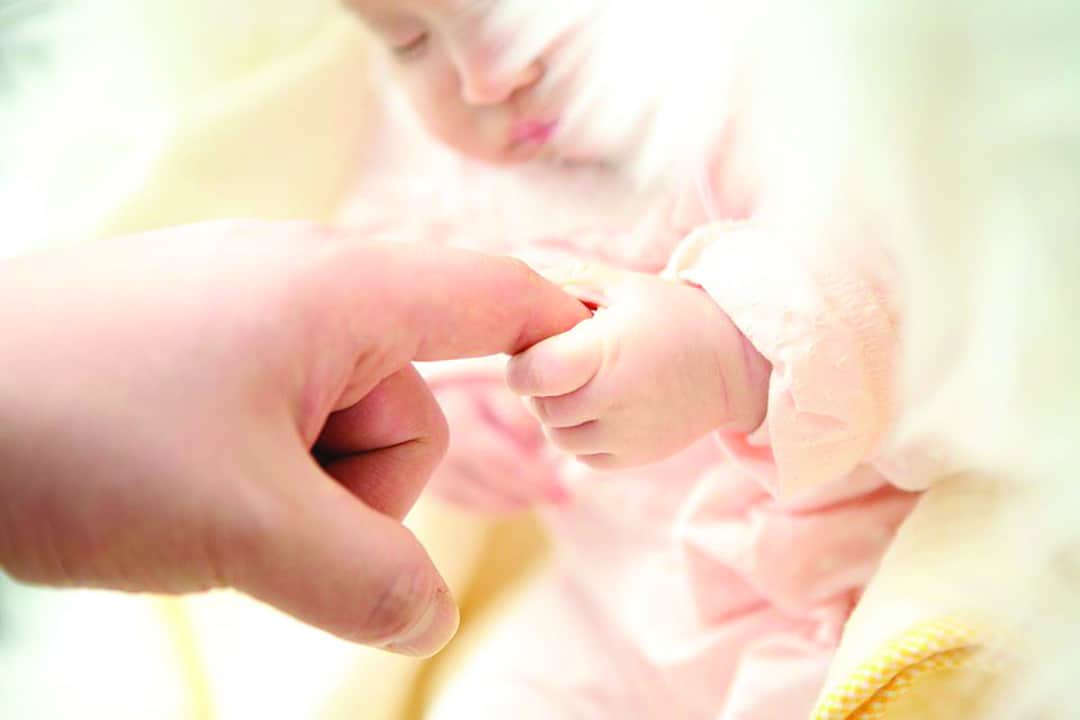Content warning: This article contains mentions of suicidal ideation.
Research on postpartum mental health issues have traditionally been focused on women. But while new mothers’ mental health is an important issue to address, it does not take away from the importance of checking in with the fathers.
Poor maternal mental health has been shown to negatively impact the baby’s development, and postpartum depression and anxiety in fathers can have the same effect. If both parents show symptoms of mental distress, the effect on the baby’s development is further worsened. Identifying and treating these postpartum conditions is vital to ensure that parents are able to properly take care of their child.
Postpartum depression affects families
A recent study, led by Cindy-Lee Dennis of the Lawrence S. Bloomberg Faculty of Nursing, looked into postpartum depression and anxiety in new fathers. Dennis is cross-appointed with the Psychiatry Department in the Temerty Faculty of Medicine, and is currently the women’s health research chair for the Li Ka Shing Institute at St. Michael’s Hospital. Her research focuses on improving the well-being of parents in order to improve the well-being of their children.
The study highlighted the shocking prevalence of postpartum struggles in fathers. It examined the mental health of 2,500 fathers between three weeks and two years after the birth of their child. The results showed that postpartum mental health disorders were common in 22 per cent of the participating fathers in the first year of the child’s life.
A key finding of the study is that the comorbidity of postpartum anxiety and depression is unexpectedly high — it was present in one out of four fathers. The high prevalence of these mental health issues further exacerbates the problem; leaving these fathers to deal with depression and anxiety on their own can be dangerous, as they may have suicidal thoughts and resist treatment.
Most fathers struggle with these issues by themselves because they’re not aware that what they’re experiencing is a legitimate condition that warrants treatment. The stigma around men’s mental health is also a barrier for establishing mental health check-ins. The culture of toxic masculinity requires that men must display strength and maintain an image of being in control, which often prevents them from reaching out for help.
Cause and effect
So what could cause poor postpartum mental health?
It’s important to realize that welcoming a new baby to the family can have impacts on not just the mother. In line with traditional masculine norms, fathers may not feel ready to support their new baby. This may have nothing to do with their ability to physically or financially provide for their family at this crucial time, but instead may point to a feeling of inner failure.
Most fathers have such a high expectation for how they wish to perform as new fathers that any small disappointment can derail their plans for being an awesome dad. Realistically, considering the needs of a newborn alongside those of your partner and yourself is no easy task, and all of these commitments won’t be fulfilled perfectly. However, fathers who strive to do their best may experience lowered self-esteem every time they can’t focus at work due to a sleepless night, or can’t comfort their partner when they’re stressed. These feelings of inadequacy can escalate into a bigger mental health concern — one which most fathers disregard, despite its prevalence.
Unfortunately, with postpartum mental health issues, the solution isn’t very simple, since you still have a newborn to take care of. A few symptoms that are initially brushed off may worsen as they are ignored in favour of attending to priorities that feel more pressing, such as work or the child.
These scenarios can also become a vicious cycle; fathers may feel these negative feelings and then further blame themselves for not being happy about the arrival of the new baby. This is one way the situation can be exacerbated. In reality, though, this is a totally reasonable thing to go through — struggling to fit a new tiny person into an already busy life does not mean that the baby is any less loved.
Hopes for the future
The findings from this study are meant to be informative for future possible treatment and intervention programs for fathers. Such scientific studies spread awareness about stressful postpartum conditions, and can help end existing stigma.
Currently, in Ontario, only mothers are screened for postpartum mental health issues. Shockingly, in interviews conducted with fathers going through these postpartum conditions, researchers found that some of the fathers tried to find information online, to no avail.
Though awareness of these issues is higher today, there’s still much to do. The study from U of T goes to show just how many cases go unaddressed, and how much new research needs to happen in order to create evidence-based interventions.
Furthermore, this study is a comment on the stigma surrounding men’s mental health. It recognizes that it is still common for men to be unaware of the importance of their own mental well-being. The high expectations brought about by the image of strong masculinity prevent men from asking for mental health support when they need it. But in the case of these fathers, making themselves aware of their own health and getting the help they need will help them be better partners and fathers.


